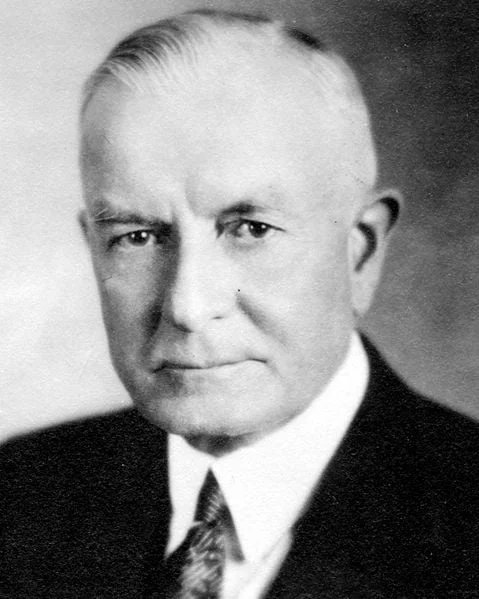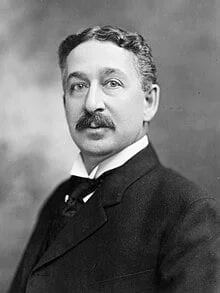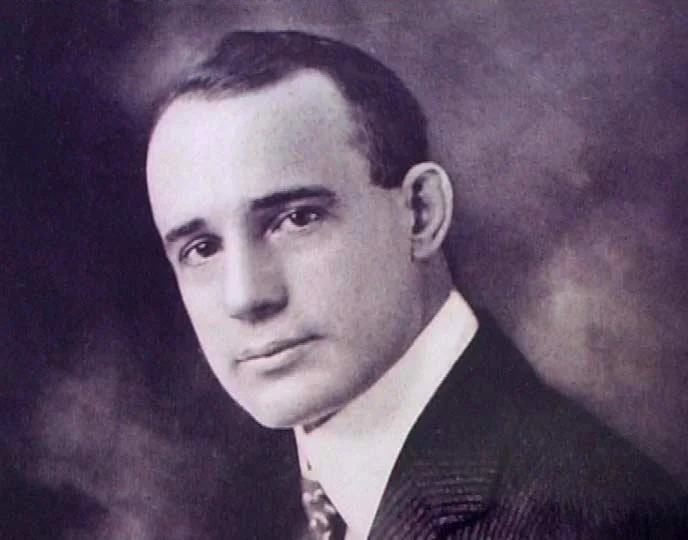Real Celebrities Never Die!
OR
Search For Past Celebrities Whose Birthday You Share

source:wikipedia.org
Thomas Watson
Birthday:
17 Feb, 1874
Date of Death:
19 Jun, 1956
Cause of death:
Heart disease
Nationality:
American
Famous As:
Chairman and CEO of IBM
Age at the time of death:
82
Thomas J. Watson's Quote's
Early Life and Background
Thomas J. Watson was born on February 17, 1874, in Campbell, New York. He was an accomplished American businessman and engineer, best known for his role as the president of IBM (International Business Machines Corporation) during the formative years of the company. Watson was a key figure in transforming IBM into one of the world’s leading technology and consulting companies.
Humble Beginnings
Watson grew up in a modest farming family in upstate New York. He displayed an early aptitude for mechanical and business tasks, which led him to pursue an education in electrical engineering. After completing his studies at Broome County School and the Buffalo Commercial College, he started his career as a salesman for National Cash Register Company (NCR) in 1898.
Success at National Cash Register Company
During his time at NCR, Thomas J. Watson quickly rose through the ranks due to his exceptional sales skills. He gained a reputation for his persuasive ability to sell cash registers, and his success caught the attention of Charles Flint, a prominent financier and founder of the Computing-Tabulating-Recording Company (CTR), which later became IBM.
Joining CTR and Early Leadership
In 1914, Watson was recruited by Flint to become the general manager of CTR’s Sales and Service organization. Under Watson’s leadership, CTR experienced significant growth and expansion.
The “Think” Philosophy
Watson’s motto “Think” became ingrained in IBM’s culture and represented the company’s constant pursuit of innovation and progress. Watson also introduced various employee welfare programs, such as providing life insurance and improved working conditions, which contributed to IBM’s positive reputation as an employer.
Renaming CTR to IBM
In 1915, Watson undertook a bold decision to rename CTR to International Business Machines Corporation (IBM). This move symbolized the company’s global ambitions and its commitment to operating beyond just the United States.
Focus on Research and Development
Watson developed a strong emphasis on research and development, leading to groundbreaking advancements in computing technology, including the creation of the IBM 701, which was one of the first electronic computers.
Resilience During the Great Depression
Despite facing challenges during the Great Depression, Watson’s leadership ensured that IBM remained resilient and adaptable. The company continued to expand its product lines and diversify into new markets, making significant contributions to various industries such as banking, insurance, and government sectors.
Commitment to Customer Satisfaction
Watson’s emphasis on maintaining customer satisfaction and providing exceptional service further enhanced IBM’s reputation and market position.
Passing of a Visionary Leader
On June 19, 1956, at the age of 82, Thomas Watson passed away in New York City. The cause of his death was heart problems. His death marked the end of an era in the history of IBM, as Watson was widely regarded as the driving force behind the company’s success for several decades.
Legacy and Contributions
Thomas Watson’s impact extended beyond his tenure as the president of IBM. His legacy is characterized by his strong emphasis on customer-focused business strategies, fostering a culture of innovation, and nurturing a sense of corporate responsibility. He is often remembered as one of the pioneers who shaped the modern technology industry and contributed to the growth and development of computing as we know it today.
Name:
Thomas J. Watson
Popular Name:
Thomas Watson
Gender:
Male
Cause of Death:
Heart disease
Spouse:
Place of Birth:
Campbell, New York, U.S.A
Place of Death:
Manhattan, New York City, U.S.A
Occupation / Profession:
He once sold over $1.5 million in cash registers within the span of one year, which was a remarkable achievement at that time.
He received the Order of the German Eagle from Adolf Hitler in 1937
He started his career as a salesman and was known as "the world's greatest salesman"
Watson's famous motto, "Think," became synonymous with IBM's culture and was displayed prominently in IBM offices and advertisements.
Watson was known for his exceptional sales skills and persuasive abilities
Junior Achievement U.S. Business Hall of Fame (1977 posthumous)
Presidential Medal for Merit (1946)
Time magazine’s Man of the Year (1952)
Yale University’s Gold Medal for Engineering (1941)


